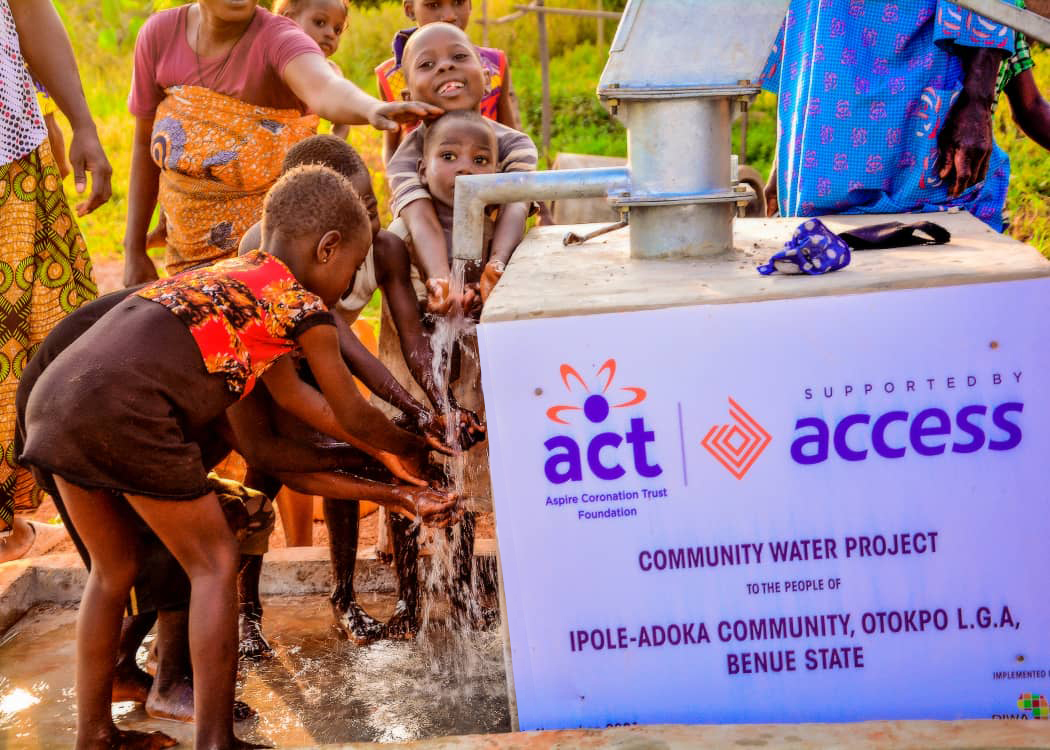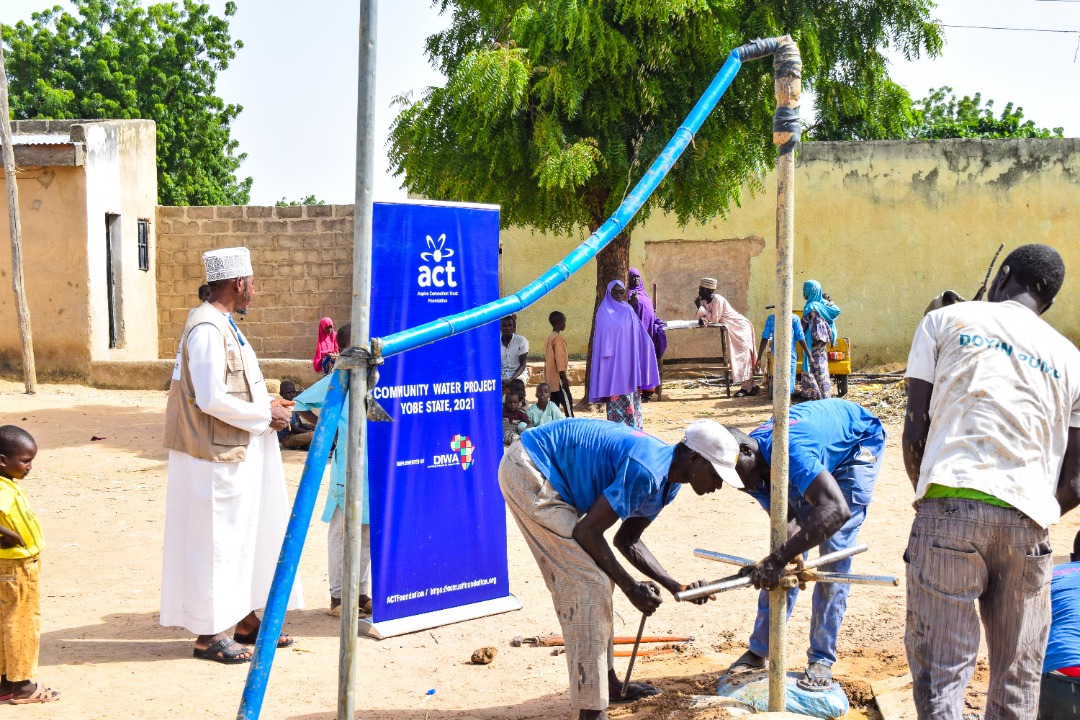Our Mission
We are committed to environmental protection while ensuring support for human activities that guarantee environmental sustainability for future generations through Waste Management. ACT Foundation also prioritizes Water and Sanitation to achieve equitable access to safe and affordable drinking water and to promote proper hygiene practice.
Our Impact
Grantee Spotlight: Development Institute of West Africa (DIWA)
Sustaining the Environment for Community Resilience
Focus: Addressing critical long-term issues affecting vulnerable communities through access to education, health and nutrition, water,
capacity-building, good governance, emergency relief, peaceful co-existence and other social services
Target: Internally displaced persons in Northern Nigeria
The Challenge
In Northern Nigeria, insurgency, desertification, and economic challenges compete for government attention, leaving basic amenities like water supply out of reach for grassroot communities. Internally displaced persons (IDPs) relocating to satellite towns due to banditry and terrorist attacks face:
- Increased population density in host communities
- Prolonged dry seasons causing water scarcity
- Gross undersupply of drinking water
- Vulnerability to environmental shocks and climate change
The Clean Water Solution
With grants from ACT Foundation in 2021 and 2022, DIWA implemented sustainable water projects:
- Construction of mechanical handpump boreholes
- Installation of clean water access points
- Technical support and monitoring systems
- Community-led maintenance committees for sustainability
Program Implementation
DIWA's methodical approach ensures community ownership and sustainability:
- Advocacy exercises to secure community buy-in
- Collaborative decision-making on optimal borehole locations
- Orientation for workers and volunteers before project implementation
- Installation of mechanical handpumps by engaged diggers
- Official handover to community leadership and Local Maintenance Committees (LMCs)
- 3-month post-handover monitoring and technical support
Results and Impacts
The project has delivered significant environmental and community benefits:
- Access to clean water established in 20 communities across Yobe and Benue States
- Improved community resilience against environmental challenges
- Reduced vulnerability to climate change and natural disasters
- Enhanced capacity for communities to adapt to changing environmental conditions
- Sustainable management through local ownership and maintenance systems
This project's impact on community resilience is of great importance to ACT Foundation's mission, as we believe that access to clean and sustainable drinking water helps these targeted communities remain strong in the face of environmental challenges such as climate change and natural disasters. Furthermore, the project continues to promote long-term sustainability by reducing vulnerability to environmental shocks and improving the capacity of communities to adapt to ever-changing environmental conditions.

